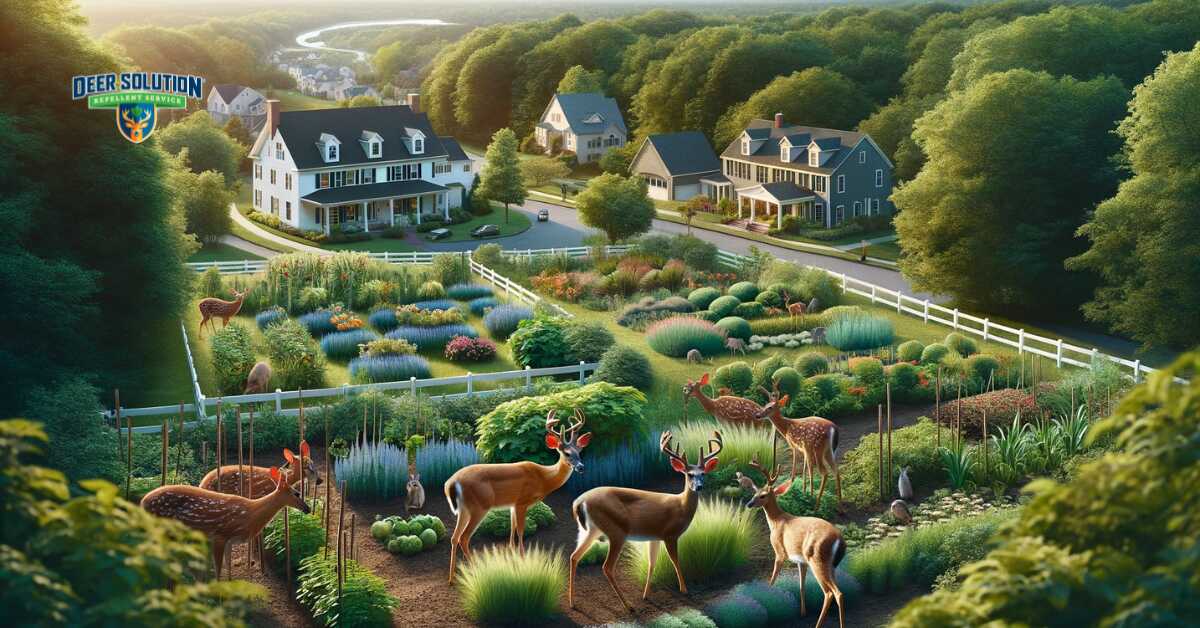Burlington County, NJ, like many regions in New Jersey, faces a significant environmental and agricultural challenge due to deer overpopulation.
This situation, similar to Atlantic County’s, is causing concerns not just in agricultural fields but also in residential areas where gardens are treasured.
The Escalating Deer Population and Its Effects
The agricultural sector of Burlington County is under considerable strain due to increasing deer populations. Farmers are experiencing extensive damage to their crops, akin to the challenges faced by their counterparts in Atlantic County.
Reports from the New Jersey Farm Bureau indicate alarming deer densities in the county, leading to substantial crop damage and placing a significant burden on farmers. These farmers are dealing with the physical and emotional toll of managing deer damage, particularly after long working hours, which is a growing concern in the agricultural community.
Residential Concerns: Protecting Gardens from Deer
In residential areas, the presence of deer has become a significant problem, particularly for homeowners who invest time and resources in their gardens. These gardens, which are often a source of pride, are at risk due to the increasing intrusions by deer.
Residents are thus increasingly concerned about protecting their gardens from the damage caused by these animals.
Legislative Initiatives and Community-Based Responses
Responding to the deer overpopulation issue, New Jersey has implemented legislative measures, including grants for deer fencing to protect crops, particularly on unpreserved farmland.
This initiative provides a practical solution to safeguard agricultural and residential interests from deer-related damages. It reflects the state’s proactive approach to dealing with the impacts of deer overpopulation.
Community Efforts in Wildlife Management
The challenge of managing deer overpopulation in Burlington County necessitates a collaborative effort from the community. It involves not just legislative responses but also active engagement from residents and effective wildlife management strategies.
Stakeholders are working together to find a balance between protecting agricultural interests, preserving residential gardens, and maintaining ecological health.
Future Prospects and Collective Action
Addressing the issue of deer overpopulation in Burlington County is a task that requires ongoing adaptation and collaboration. It involves developing sustainable solutions that protect agricultural interests, preserve the natural beauty of residential areas, and maintain ecological balance.
As the county continues to tackle this issue, the strategies and lessons learned could provide valuable insights into similar challenges faced by other regions.
Raising Public Awareness
Part of the solution involves raising public awareness about the impact of deer on agriculture and ecosystems. Educating residents about the challenges and encouraging community participation in management efforts are key aspects of addressing this issue effectively.
Burlington County’s situation with deer overpopulation is indicative of a broader challenge faced across New Jersey. It highlights the need for integrated solutions that address the complex nature of wildlife management in both urban and rural settings.
As the county moves forward in its efforts to manage deer populations, it sets an example for other communities facing similar challenges.










